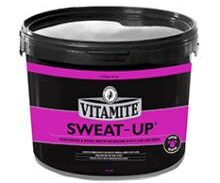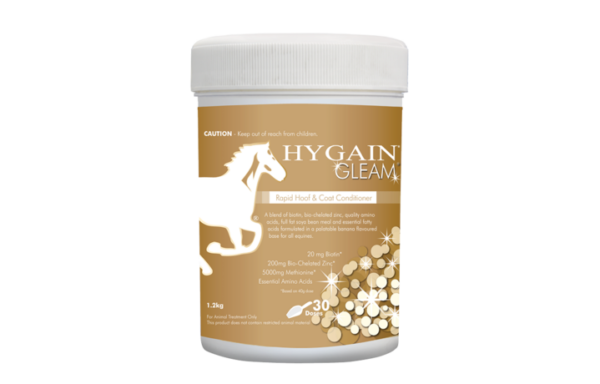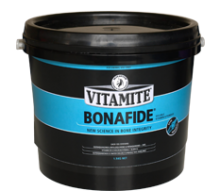Vitamite – Sweat-Up
Item Description
Anhidrosis, or non-sweating, is a poorly understood condition affecting thousands of horses world-wide, mainly in tropics and sub-tropics.
- It was once thought to be a problem of acclimatization failure in horses imported to the (sub)tropics, but a survey in Florida, USA has shown that as many or more native horse are affected. This is also the case in Northern Territory, Australia.
- Symptoms are, to varying extents, a combination of
- High respiration rate (even over 100/minute)
- Poor or absent sweating (even when injected with adrenalin)
- Dull coat, scaly skin & crumbly brittle hooves
When Mitavite’s researchers began to examine the problem, they found that in most of the sufferers there was a high calcium/trace mineral ratio in the diet e.g. Ca:Zn greater than 70.
Several researchers have attributed the puffs, or “panting” rapid respiration (hyperventilation) to an alternate attempt at cooling, like a panting dog.
The problem with this explanation is that the affected horse does not have his mouth open and his tongue out; also the horse will hyperventilate before it gets hot – i.e. a normal horse working beside it hasn’t begun to sweat.
If the non-sweating were left out, and the other symptoms considered, a pig veterinarian would probably diagnose parakeratosis. That is what the disease has been assumed to be– a secondary zinc deficiency (“secondary” because there is sufficient zinc in the diet for a normal horse), – a response to zinc therapy within a week for a “first-time” sufferer is evidence that this theory is sound.



